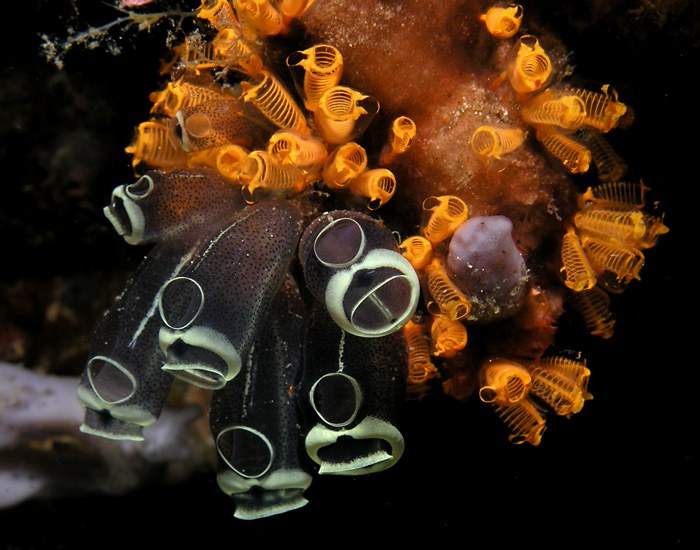Like sea cucumbers, the Red Sea tunicate Polycarpa mytiligera is able to expel its digestive tract (as much as 75%). However, researchers have discovered that, unlike sea cucumbers, the tunicate’s innards are not palatable to predators. While sea cucumbers will expel their digestive tract in hopes of luring predators to dine on their tasty innards while the sea cucumber makes a slow escape, a tunicate’s off-putting (but not toxic) digestive tract is used to repulse predators. This makes perfect sense since tunicates are sedentary and unable to scoot off like a sea cucumber can.
Furthermore, the tunicates were able to fully regenerate their digestive system within a just 19 days. Imagine regrowing a complete organ in less than three weeks. Remarkable!
How might this research help humans? Says the researchers in their Scientific Reports paper: “Given the close affinity of ascidians to vertebrates, the regeneration pathway of the viscera and branchial sac of ascidians suggests its potential beneficial application in soft tissue regeneration research.” Yep; these strange little tubular creatures have more in common with humans than corals, insects, or crabs. One day, you might be able to thank your cousin (52,135,853-removed) for teaching us better treatments of visceral injuries in humans.










0 Comments